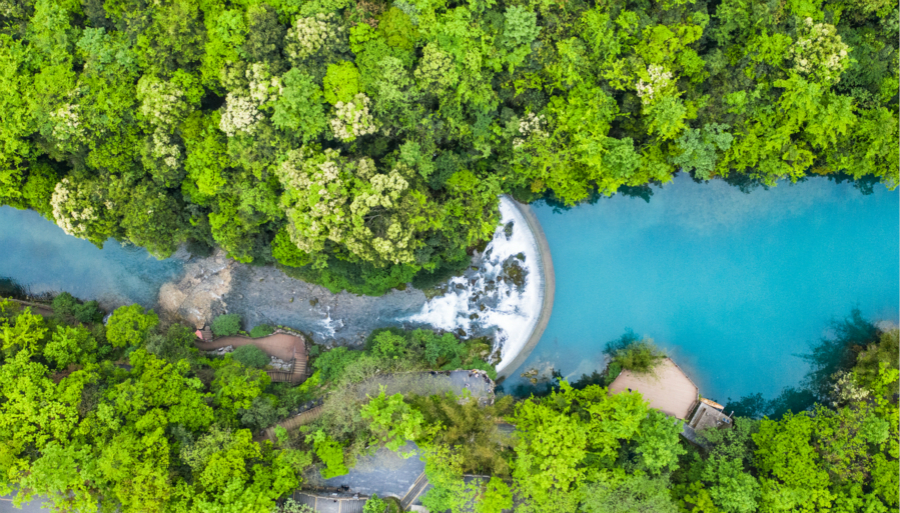Biodiversity protection focus of overall development plan
Ecology and environment core of economic policy

An aerial photo shows the stunning view of Xiaoqikong scenic spot in Libo county, Guizhou province, on April 11, 2020. [Photo/Xinhua]
China has for years been protecting and restoring natural ecology and the environment, and has established a target responsibility system to improve ecological and environmental quality, developed innovative systems of assessment, inspection and accountability, and greatly raised the level of biodiversity conservation. It has also made steady progress in the construction of 25 pilot projects for ecological protection and restoration of mountains, rivers, forests, lakes and grasslands, and put 90 percent of the terrestrial ecosystems and 85 percent of key wildlife populations under environmental regulations.
While exploring ways to ensure harmonious coexistence between humans and nature, in line with the goals and vision of the UN Convention on Biological Diversity, China is also helping build a global ecological civilization. China was the first country to issue the National Implementation Plan on the 2030 Agenda for Sustainable Development, has contributed to and participated in the Convention on Biological Diversity, and made notable progress toward 17 of the 20 Aichi Biodiversity Targets and achieved some of them before schedule. (According to the recently released Global Biodiversity Outlook 5, only six Aichi Targets have been partly met at the global level).
Also, the United Nations has designated the Kubuqi Desert in the Inner Mongolia autonomous region as a desert ecological-economic demonstration area. And the Saihanba Afforestation Community and the "1,000 Villages in Demonstration and 10,000 Villages in Renovation" project in Zhejiang province have won the UN "Champions of the Earth" award.
Further, China has announced its carbon emissions will peak before 2030 and it will attain carbon neutrality by 2060 and thus boost the global fight against climate change and help protect biodiversity.
To strengthen ecological and environmental protection, China has shifted from quantitative economic growth to high-quality, green development. China understands the organic yet complex relationship between humans and nature, between the environment and people's livelihoods, and between conservation and development.
And it has been making efforts to better understand the development paradigm of ecological civilization that is different from that of industrial civilization, in order to build a green society, which will ensure harmonious coexistence of humans and nature as well as sustainable development.
Wu Shunze, a professor at Policy Research Center for Environment and Economy, Ministry of Ecology and Environment.
The views don't necessarily reflect those of Qiushi Journal.
























